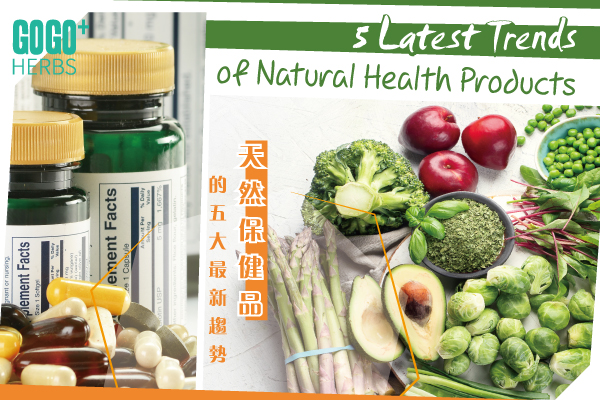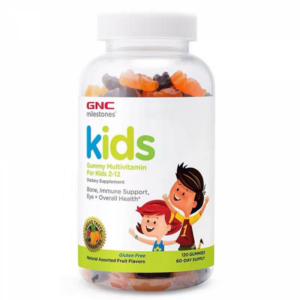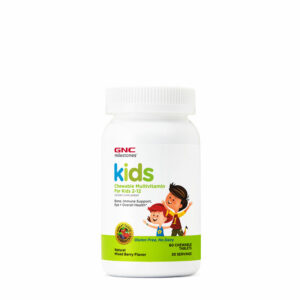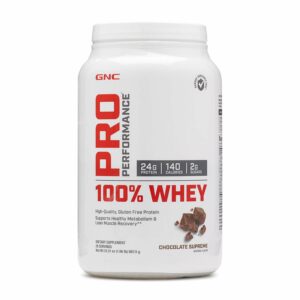
Five Recent Trends in Natural Health Supplements
Over the past few decades, the health supplement and fitness industry has evolved into a core hub for reliable medical solutions globally. Oddly enough, this success cannot be attributed to a single factor or role within the industry. However, we can gently say that the conscious and subconscious goodwill of every participant in the industry is attributable to this milestone in the health sector.
In addition, we should also thank modern industry trends, such as the oversight role of relevant regulatory agencies (like the FDA), the discovery of more scientific methods, the application of natural resources and technologies, and healthy competition among manufacturers.
Natural health products: A brilliant development
Today, natural and over-the-counter health products are rapidly becoming the preferred choice for many seeking assistance with health-related issues. For millennia, the active ingredients in natural health products have been used to aid health and treat disease. Industry experts are now streamlining these effective solutions into pill, capsule, tablet, or liquid forms based on consumer preferences.
However, on the other hand, there is no doubt that the market for health products has become saturated, with each manufacturer showcasing vitamins and minerals, plant-based ingredients, and naturally derived substances. Therefore, the biggest challenge has always been choosing the right product from the vast array of options available to consumers.
Typically, reliable indicators of a top-performing product lie in its external value and adherence to industry trends. As a customer, your online and offline purchasing decisions depend entirely on your experience viewing product images, labels, and product information. This article explores five fundamental trends for identifying popular health products on the market.
1. Focus on "no harmful substances label" and all-natural ingredients.
For a long time, regulatory agencies have consistently and actively taken measures to curb manufacturers' use of potentially unsafe ingredients and irritants. Furthermore, the evaluation role of independent third-party testers has forced manufacturers to adopt more natural production methods and new protocols. Popular brands rely on their responsibility to provide comprehensive information on health product labels, completely disregarding the addition of complex ingredients and avoiding the use of harmful preservatives or flavorings with complicated names. A strong illustration of this involves a brand's ability to comply with FDA rules. Therefore, popular and premium brands are vying to prevent their health supplements from containing any ingredients listed on the FDA's Dietary Supplement Ingredients Advisory List.
2. Healthy superfoods are becoming increasingly popular.
To meet the demands of health-conscious consumers, natural health supplements are experiencing a market supply boom. To promote healthier snacking and achieve weight loss goals, these supplements contain abundant essential vitamins, minerals, and other rich nutrients that can boost immunity, improve complexion, and enhance memory.
Safe and healthy foods primarily consist of natural varieties derived from vegetable powders, fruits, and various nuts (nuts, cashews, hazelnuts, pecans), which is the trend. In recent years, other health-promoting foods such as quinoa, kale, sesame, and cauliflower have also seen a surge in popularity. More importantly, unlike decades ago, today's ketogenic dieters and vegetarians can increase their intake of safe and healthy foods to suit their dietary and lifestyle choices.
3. Sustainable and flexible packaging
Today, modern manufacturers have a responsibility to consumers, the environment, and society in order to influence the market. Some companies even choose organic and food-grade materials to showcase their environmental initiatives. Undoubtedly, this trend has led to many positive aspects in branding, packaging, and storage features. Packaging for popular health supplements is shifting from non-recyclable plastics to biodegradable materials. Customers are also looking for more stylish packaging features, such as easier opening and resealing, lighter packaging, and extended product shelf life.
4. Customized and personalized packaging
In recent years, manufacturers have made significant efforts to make health supplements more accessible to consumers. These trends range from customized digital printing to smart, personalized product delivery. While this tradition evolved from mainstream commercial brands like Coca-Cola, supplement manufacturers such as Persona and Vitamin Shoppe are drawing on this experience to offer consumer-friendly packaging that appeals to consumers.
Some manufacturers have also added a variety of colors, stylish designs, and gradients to their packaging to attract consumers of different age groups.
5. Diverse consumption patterns and assimilation options
Modern manufacturers are looking beyond the traditional capsule and liquid forms of health supplements. Incidentally, especially when pills are made with palatable natural ingredients, consumers have never found a good idea to put pills in products. This explains why manufacturers are constantly seeking innovation to make product consumption a delicious and enjoyable experience.
Therefore, most health supplements are health candies, gummies, and chewable tablets offered to younger consumers. Meanwhile, some manufacturers are considering sublingual consumption, including the use of tinctures. They believe these new trends will ensure that supplements are absorbed into the bloodstream more quickly.
Reference source:
- https://www.fda.gov/food/dietary-supplement-products-ingredients/dietary-supplement-ingredient-advisory-list
- https://www.fda.gov/food/food-labeling-nutrition/changes-nutrition-facts-label
- https://www.yorksaw.com/packaging-industry-trends/
Related Post:
Related Products:
-
Sale!
 Out of stock
Out of stock
GNC – Children's Multi-Purpose Gummies 120 capsules
Original price was: $148.00.$120.00Current price is: $120.00. Read more -
GINAX – Manuka Honey UMF™ 5+ 30g
Original price was: $30.00.$25.00Current price: $25.00. Add to basket -
GNC – Chewable Children's Multivitamins Natural Mixed Berry Flavour 60 Tablets
Original price was: $135.00.$118.00Current price is: $118.00. Add to basket -
GNC – Pro Performance 100% Whey Protein (Chocolate Flavour) 887.5g
Original price was: $420.00.$318.00Current price is: $318.00. Add to basket





































































